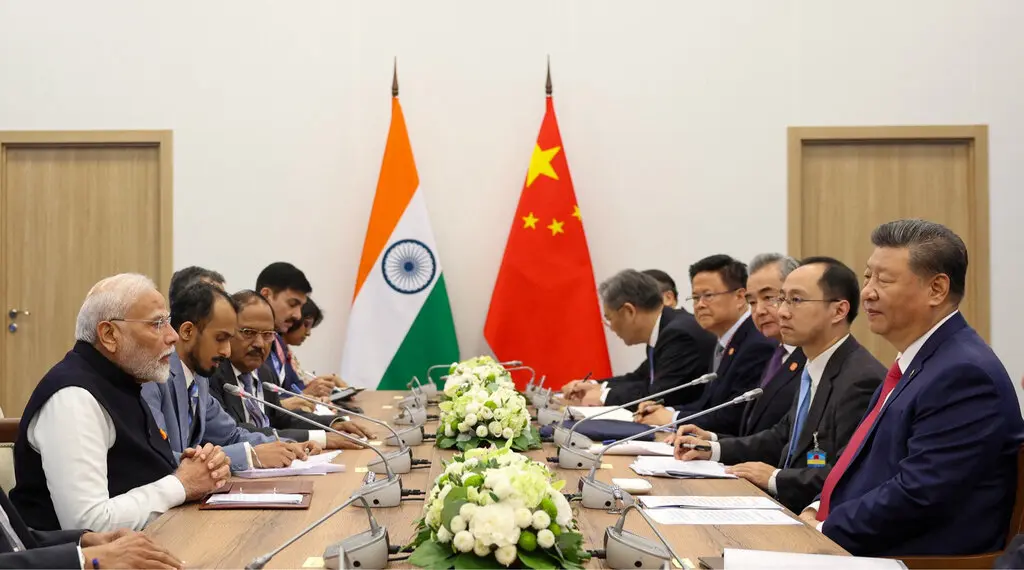China offers to mediate border dispute between Thailand and Cambodia via peaceful dialogue
China Offers to Mediate Border Dispute Between Thailand and Cambodia via Peaceful Dialogue
In a significant diplomatic development, China has offered to mediate the ongoing border dispute between Thailand and Cambodia through peaceful dialogue. The offer comes amid escalating tensions between the two Southeast Asian nations following a series of confrontations along disputed areas near their shared frontier. China's proposal, extended through official diplomatic channels during a regional summit in Kuala Lumpur, highlights Beijing's increasing interest in playing a stabilizing role in its neighborhood while advancing its strategic interests in the ASEAN region.
Background of the Dispute
The Thailand Cambodia border dispute has historical roots dating back over a century, with intermittent flare ups occurring even in modern times. Although both countries have largely enjoyed cordial ties in recent years, territorial disagreements especially over areas like the Preah Vihear temple zone and surrounding land have remained unresolved. In May 2025, tensions reignited when a skirmish erupted near the Chong Bok border region, resulting in the death of a Cambodian soldier. This incident prompted both countries to reinforce troops along their shared border and temporarily suspend trade activities at key checkpoints.
Following the deadly clash, Cambodia filed a complaint with the International Court of Justice (ICJ), seeking arbitration on four contested areas. Thailand, on the other hand, rejected the ICJ’s jurisdiction in this case, preferring bilateral negotiations over third party adjudication. This divergence in approach has deepened the impasse, with growing fears of military escalation or a protracted diplomatic freeze.
China’s Strategic Entry
In response to the rising tension, Chinese Foreign Minister Wang Yi held separate meetings with Thai and Cambodian officials during the recent ASEAN Foreign Ministers’ Meeting. He emphasized China’s neutrality and commitment to peace in the region, offering Beijing’s services as a mediator. Wang stated that China supports peaceful dispute resolution based on mutual respect and dialogue, adding that Beijing was willing to facilitate talks between the two parties without imposing any terms or favoring either side.
“Peace and stability in Southeast Asia are in the collective interest of all regional stakeholders,” said Wang Yi in a public statement. “China encourages both Thailand and Cambodia to exercise restraint, resume dialogue, and find common ground through diplomatic engagement.” He further noted that China values its deep ties with both nations and wants to ensure that misunderstandings do not spiral into conflict.
China’s willingness to step in may reflect its broader goal of being seen as a peacemaker in regional conflicts, especially where the Association of Southeast Asian Nations (ASEAN) has struggled to assert its influence. China’s Belt and Road Initiative, significant investments in infrastructure across both Thailand and Cambodia, and growing trade links give it both the leverage and the incentive to ensure that instability does not disrupt regional economic activity.
Reactions from Thailand and Cambodia
The initial response to China's offer has been cautiously optimistic. Cambodian Prime Minister Hun Manet expressed appreciation for China's gesture, calling it "a valuable step towards restoring calm and mutual trust." He reiterated Cambodia’s commitment to peace but defended the country's decision to approach the ICJ, saying that international legal mechanisms are part of Cambodia’s sovereign rights.
Thailand’s Foreign Minister Maris Sangiampongsa responded more diplomatically, thanking China for its concern but emphasizing Thailand’s preference for bilateral resolution. “We appreciate any international effort that upholds the principles of sovereignty and mutual respect,” he said. “Thailand believes in the power of direct dialogue to address sensitive issues.”
Despite the diplomatic tone, observers note that internal politics in both countries could influence their stances. In Thailand, Prime Minister Paetongtarn Shinawatra’s government has been facing pressure following a controversial leaked phone call between her and Cambodian counterpart Hun Sen. The leak, which revealed candid discussions about military matters, triggered a political backlash, ultimately leading to the exit of a coalition partner and legal proceedings against the Prime Minister. Cambodia, meanwhile, has seen a rise in nationalist rhetoric, with anti Thai sentiments occasionally surfacing in political discourse.
Broader Security and Crime Concerns
Beyond the territorial disagreement, the border region has become a hotbed of criminal activities, including online gambling, drug trafficking, smuggling, and human trafficking. China’s mediation offer also includes a proposal to enhance trilateral cooperation on transnational crime prevention. Chinese officials have pointed out that instability in border areas could provide fertile ground for criminal networks, affecting not just the disputing countries but also regional partners.
Wang Yi reportedly proposed the creation of a trilateral working group that would focus on coordinated border patrols, intelligence sharing, and joint law enforcement initiatives. Cambodia has already welcomed the idea, while Thailand has said it will consider it once the current dispute de escalates.
This strategy signals that China is not merely interested in resolving the territorial impasse but also in ensuring broader regional security. Analysts view this as part of China’s evolving diplomatic playbook, where conflict mediation is paired with proposals for integrated security cooperation a model Beijing has applied in other contentious regions such as Central Asia and the South China Sea.
ASEAN’s Limited Role
The crisis has also exposed the limitations of ASEAN in resolving member state conflicts. While ASEAN has called for calm and urged both parties to respect peaceful norms, it has not offered a clear mechanism for arbitration. The bloc’s consensus driven model often hampers decisive action, particularly when member states are directly involved in disputes.
As such, China’s offer fills a vacuum. While some ASEAN nations are wary of increasing Chinese influence, others may see this as a pragmatic step to avoid a deeper crisis. In fact, Malaysia, which currently chairs ASEAN, has remained neutral on the matter, welcoming any effort that prevents escalation while urging both sides to keep channels of communication open.
Prospects for Resolution
if China’s offer will lead to a genuine resolution remains uncertain. Much depends on if both Thailand and Cambodia are willing to compromise and accept a third party role in what they regard as highly sensitive national matters. If successful, China’s mediation could pave the way for a new era of regional diplomacy, where larger powers play constructive roles in settling bilateral disputes.
However, the risks are equally high. Any perceived bias or misstep by Beijing could backfire, reducing trust and complicating future negotiations. Moreover, the intertwining of territorial issues with domestic political instability, as seen in Thailand, adds another layer of unpredictability.
Conclusion
China’s offer to mediate the Thailand Cambodia border dispute marks a notable moment in Southeast Asian diplomacy. With rising tensions, halted trade, and the threat of military escalation, the involvement of a major power like China could be the catalyst needed to break the deadlock. While challenges remain, the move demonstrates the increasing interlinkage of regional peace, economic connectivity, and international diplomacy in the modern era. As both nations weigh their options, the world will watch closely to see if peace can once again triumph over conflict in this historically fraught region.






 Genetic Mapping of Indian Crops
Genetic Mapping of Indian Crops  India-China Border Talks Resume
India-China Border Talks Resume  India’s New Carbon Removal Breakthrough Wins Global Recognition
India’s New Carbon Removal Breakthrough Wins Global Recognition  South Korea, U.S., Japan conduct air drill with B 52 bomber over Peninsula
South Korea, U.S., Japan conduct air drill with B 52 bomber over Peninsula  AWS to launch AI agent marketplace
AWS to launch AI agent marketplace